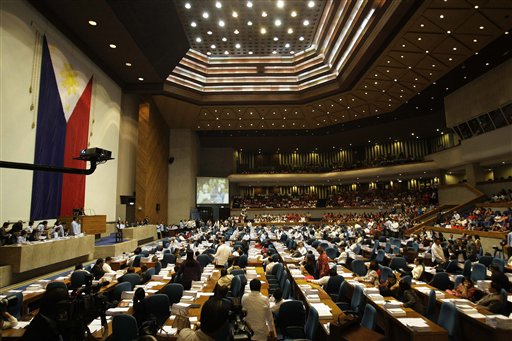BAGUIO CITY, Philippines—Former Chief Justice Reynato Puno on Saturday chastised Congress for sleeping on its constitutional mandate to enact an antidynasty law.
“There are no ifs or buts, the 1987 Constitution prohibits political dynasties. Unfortunately, the Constitution gave Congress the power to enact laws in order to implement this constitutional prohibition in 1987,” Puno told religious and civil society leaders at the Baguio Convention Center.
Section 26 of the Constitution’s Declaration of Principles and State Policies in Article II states: “The State shall guarantee equal access to opportunities for public service, and prohibit political dynasties as may be defined by law.”
Federal form
“It is now 2015, and instead of eliminating the dynasties, Congress has allowed them to flourish and to multiply. They are now reigning supreme in all our provinces, cities and municipalities. Their number must have broken a Guinness world record,” he said.
Puno has been campaigning to amend the 1987 Constitution, so the country can shift power from a president to a parliament representing all Filipino sectors and economic classes.
He said a parliament or a federal form of government would decentralize government and allow Filipinos to benefit from economic growth.
“Congress is back in session [but] it would appear from day one that the House of Representatives has not been able to gather the necessary quorum … [and could not] tackle the BBL (Bangsamoro Basic Law), the antidynasty bill, as well as the FOI (Freedom of Information) bill,” he said.
Puno said Sweden had a version of the FOI law among its statutes as early as 1766, and 95 countries today had passed similar laws that gave citizens access to government information.
Parked in Congress
But while the FOI and antidynasty bills are measures that would improve Philippine governance, these bills remain “parked in the halls of Congress,” he said.
The 1987 Constitution displays the “overcentralization of government” because it states that “executive power is vested alone in the President, legislative power is vested alone in Congress, and judicial power is vested alone in the Supreme Court and lower courts.”
Puno said these powers should be shared. Under the current system, powers are shared “only if the national government so desires,” he said.
“If we had a parliamentary form of government, this anomaly [involving political dynasties] would not have lasted,” he said.
“If parliament does nothing about this flagrant violation of the wish of the people, that parliament would be dissolved and its members booted out of office. The same fate would befall legislators who persist in mothballing the FOI [bill]. If we had a parliamentary system, these legislators who dragged their feet would now be jobless,” he said.
RELATED STORIES
CBCP chief: End political dynasties, reject corrupt
Malacañang defends political dynasties
RELATED VIDEO
